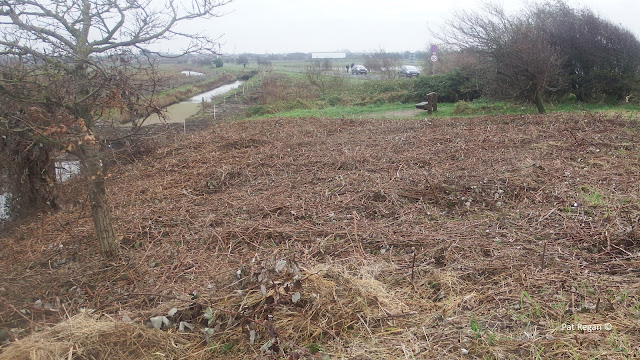Above: previously an area with thick bramble and thorn cover, essential for birds, has been ripped down.
Above: a long line of nesting habitat destroyed along Marshide Road.
Birdwatchers and other nature lovers are at a loss to understand why this 'crime against nature' has been undertaken at Marshide.
Above: precious songbird habitat eradicated and today just a dead patch of dried brambles and twigs.
The RSPB state on their website:
‘Clearing work has continued along the road and sea wall. Its important we prevent these areas from ‘scrubbing’ up and encroaching or providing nesting and perching for generalist predators. It may also help provide better view of parts of the marsh.’
Therefore, it appears that the RSPB have admitted that they are attempting to stop ‘selected’ birds nesting at the bird reserve. However, this seems like rather strange logic as by doing so they also prevent other species from nesting there! The rest of their comment gives evidence that the habitat removal was performed for ‘cosmetic’ reasons. Furthermore, no concern was given to mammals and insects etc, that rely on shrub for food and shelter.








No comments:
Post a Comment